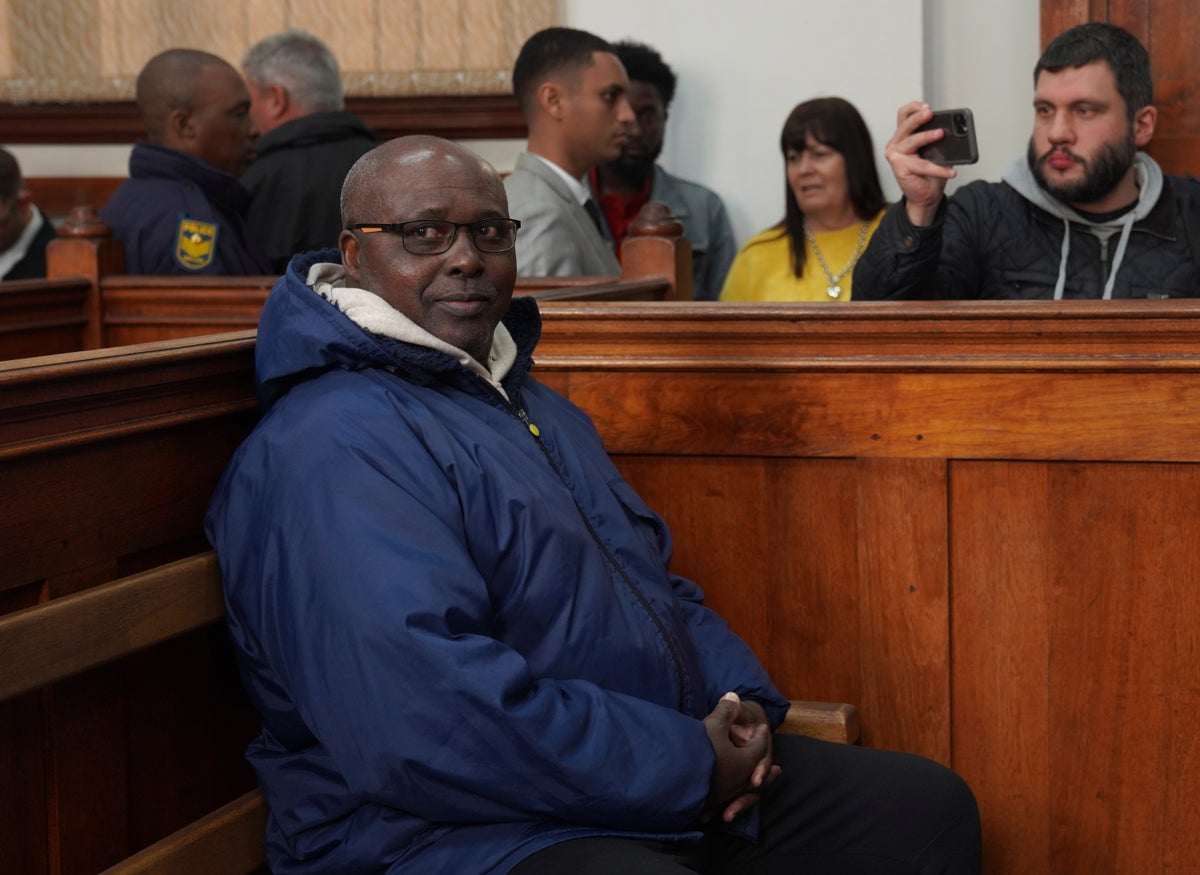
One of Rwanda's most wanted suspects for the country's 1994 genocide appeared in a South African courtroom Friday, clutching a Bible and another book inscribed with “Jesus First” on the cover.
Fulgence Kayishema was a police officer with the rank of inspector when he allegedly orchestrated the killings of more than 2,000 people - including children - as they tried to seek refuge in a church during the first days of the genocide.
He was arrested Wednesday in a small town in a wine-making region about 30 miles east of Cape Town having managed to evade justice for nearly 30 years. South African authorities gave his age as 61.
Wearing glasses and a blue winter jacket with a hood, Kayishema confirmed his identity when asked by a judge during his brief appearance at the Cape Town Magistrates Court. He held up the religious books for journalists and others in the courtroom to see before the hearing began and such through much of the proceedings with his hands clasped in his lap.
He was indicted for genocide and crimes against humanity in 2001 by a tribunal investigating the horrors of the Rwandan genocide, where more than 800,000 people were slaughtered when members of the ethnic Hutu group turned on the minority Tutsis and other Hutus trying to protect them.
Kayishema will be held in custody until another hearing at the same courthouse next Friday, the judge said. He is expected to be extradited to Rwanda and ultimately go on trial for genocide and crimes against humanity.
The five charges South African prosecutors brought against him Friday relate only to him making false statements on immigration forms as far back as 23 years ago to enter and stay in South Africa.
In January 2000, Kayishema lied to South African authorities by using a fake name - Fulgence Dende-Minani 0 and claiming to be a refugee from Burundi, prosecutors alleged in court documents. He was granted asylum in 2004, but that expired two years later according to prosecutors. He had apparently still been living in South Africa for the last 17 years.
It was unclear if he would would go on trial on those charges in South Africa before his extradition to stand trial for genocide.
Kayishema was indicted for the Rwandan killings more than 20 years ago by the International Criminal Tribunal for Rwanda, which was set up by the United Nations to investigate the genocide and bring killers to justice. The International Residual Mechanism for Criminal Tribunals has continued the work of that tribunal, and announced Kayishema's arrest on Thursday.
It called him "one of the most wanted suspects" in the Rwandan genocide.
According to the South African prosecutors' documents, he had fled from Rwanda at least a year before his indictment on the killing of 2,000 Tutsi refugees.
Kayishema was among the leaders of a group that first tried to burn the church down. When that plan failed, he and others used a bulldozer to raze the building, crushing and killing the people inside, the indictment said.
He was also involved in moving the bodies to a mass grave over the next two days, according to the indictment.
He was ultimately tracked down to the town of Paarl in South Africa's Western Cape province, an historic old town known mostly for its wine making and for having one of South Africa's most prestigious rugby-playing schools.
Kayishema was arrested by the genocide tribunal's fugitive tracking team and Interpol, with help from authorities in Rwanda, South Africa, Mozambique, Eswatini, Britain, Canada and the United States, the tribunal said.







